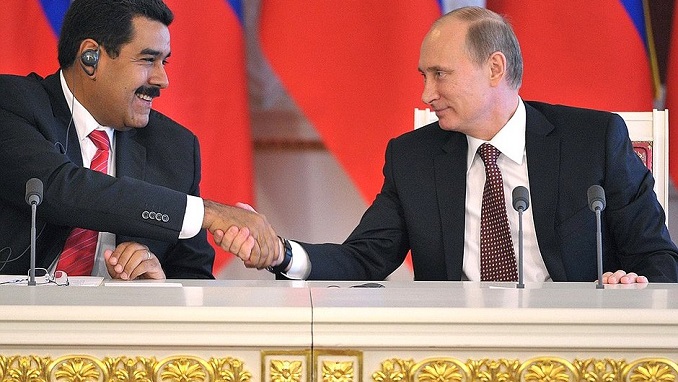Russia plans to supply more than double the amount of grain to Venezuela this year, from 254,000 tons in 2018 to 600,000 tons, RIA Novosti reported citing a handout issued ahead of talks between Venezuelan and Russian leaders.
President Nicolas Maduro is visiting the Russian capital for discussions with his Russian counterpart Vladimir Putin.
Moscow has been one of Maduro’s biggest backers in the face of what it has described as unacceptable U.S. efforts to undermine him, including providing loans and help for Venezuela’s military and oil industry.
Neither Putin nor Maduro spoke about any financial aid in their opening remarks Wednesday.
According to Atlantic Council analysts, aside from political interests, economic considerations have provided additional reasons for Moscow to develop closer relations with Caracas.
Venezuela became a significant market for Russian energy companies and arms makers, as Venezuela used Russian credits to buy $4 billion worth of weapons from 2005 to 2008. Russia’s largest oil company, Rosneft, began to invest heavily in Venezuela.
“Moscow’s backing of Maduro supports every element of Kremlin policy listed above. It intends to demonstrate Moscow’s great power reach, thwart U.S. policy in its own hemisphere, and underscore that a multipolar world will replace the era of American predominance. For some Russian thinkers, it presents a potential ‘spheres-of-influence’ bargain: Moscow could drop Maduro in exchange for Washington giving Moscow free rein in its own sphere of influence in Ukraine, Georgia, and Moldova,” the Atlantic Council said in a recent analysis of Russia’s role in Venezuela.
“Moreover, Kremlin policy seeks to undermine the international liberal order by supporting a friendly authoritarian ruler fraudulently “re-elected” and on the verge of falling to a democratic movement,” the think-tank added.












